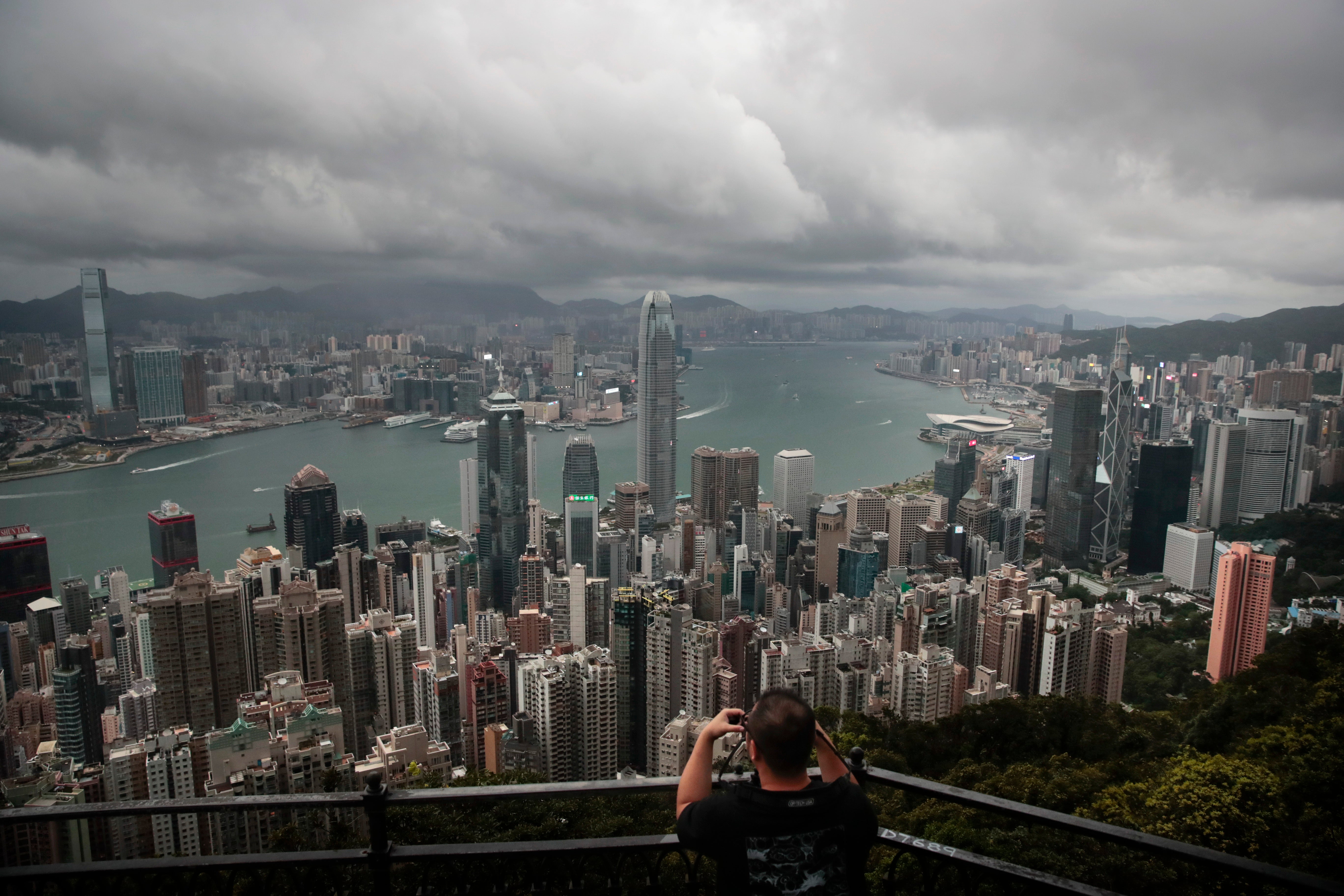In Hong Kong, world bankers urged not to 'bet against' China
Chinese regulators have downplayed risks from the country's real estate slump and slowing growth at a financial conference in Hong Kong

Chinese regulators downplayed China’s real estate slump and slowing economic growth while Hong Kong's top leader pitched Hong Kong as a unique link to the rest of China at a high-profile investment summit Wednesday.
About 200 global financial executives gathered to network and discuss issues such as global risks and sustainable finance at Hong Kong’s first major conference since the city lifted COVID-19 quarantine restrictions.
Fang Xinghai, vice chairman of the China Securities Regulatory Commission, urged those attending to visit China to understand what is happening in the country and urged them not to “bet against” China and Hong Kong.
International media “don’t really understand China very well” and have a “short-term focus,” he said, drawing laughter and applause from the audience.
Fang and other Chinese officials addressed the conference in prerecorded interviews — travel to and from mainland China is constrained by strict quarantine requirements.
China's central bank governor, Yi Gang, said that inflation remains subdued, at under 3% compared with 8% or more in many Western economies, and the country's economic and reform policies will continue. Such comments appeared to be meant to counter worries that flared following a Communist Party congress last month, where leader Xi Jinping was awarded an unprecedented third five-year term and key reformers were excluded from top ruling party leadership.
“China has a super ‘long' market, as there is still much room for urbanization and the demand of middle class consumers is still on the rise,” said Yi.
China’s economy grew at a 3.9% annual pace in the last quarter compared to a year earlier, well below an official target of more than 5%, and the vital real estate sector has languished as regulators have sought to curb debt mounting toward unsustainable levels.
Xiao Yuanqi, vice chairman of the China Banking and Insurance Regulatory Commission, sought to reassure those attending the conference, saying property loans make up just 26% banks' total lending and 90% of property loans were “good quality.”
The speakers lineup at the Hong Kong conference includes Morgan Stanley CEO James Gorman and Goldman Sachs CEO David Solomon and other leading executives from institutions such as Citigroup and Blackstone.
It is designed to highlight the former British colony's role as an attractive and competitive financial hub.
The city remains the “only place in the world where the global advantage and the China advantage come together in a single city,” Hong Kong Chief Executive John Lee said in opening the event.
“This unique convergence makes Hong Kong the irreplaceable connection between the mainland and the rest of the world as the center of economic gravity in the world shifts eastward,” he said.
The British handed control of Hong Kong to China in 1997 with the understanding that Beijing would allow the tiny territory autonomy in its legal system and economic policies for at least 50 years. In recent years Beijing has been expanding its influence. Such efforts gained momentum after mass protests in 2019 demanding a more democratic system of leadership, culminating in the implementation of a security law designed to quash dissent.
Combined with strict quarantine controls and a sharp downturn in tourism, that has compounded the economic impact from the pandemic.
Lee said the “worst is behind” Hong Kong. A former security chief, he told the conference “law and order has returned" and social disturbances were in the past.
Organizers pushed ahead with the long-planned conference despite tropical storm warnings that led authorities to close schools.
As tropical storm Nalgae drew closer to the city, the Hong Kong Observatory said that it would raise its T8 signal in the afternoon, which would effectively shut down the city and stop trading on the stock market.
Hong Kong pulled out all the stops for the financial conference, adjusting COVID-19 restrictions to allow participants to dine in at specific restaurants. Most other inbound travelers are banned from doing so for three days after they arrive in the city.
Attendees who test positive for COVID-19 are allowed to leave by chartered flights if they want to, instead of having to be isolated for at least seven days in Hong Kong.
Some U.S. lawmakers have urged American companies not to participate in the meeting given tensions with China over trade and human rights. The U.S. has been vocal about Hong Kong's crackdown on dissent following implementation of the National Security Law.